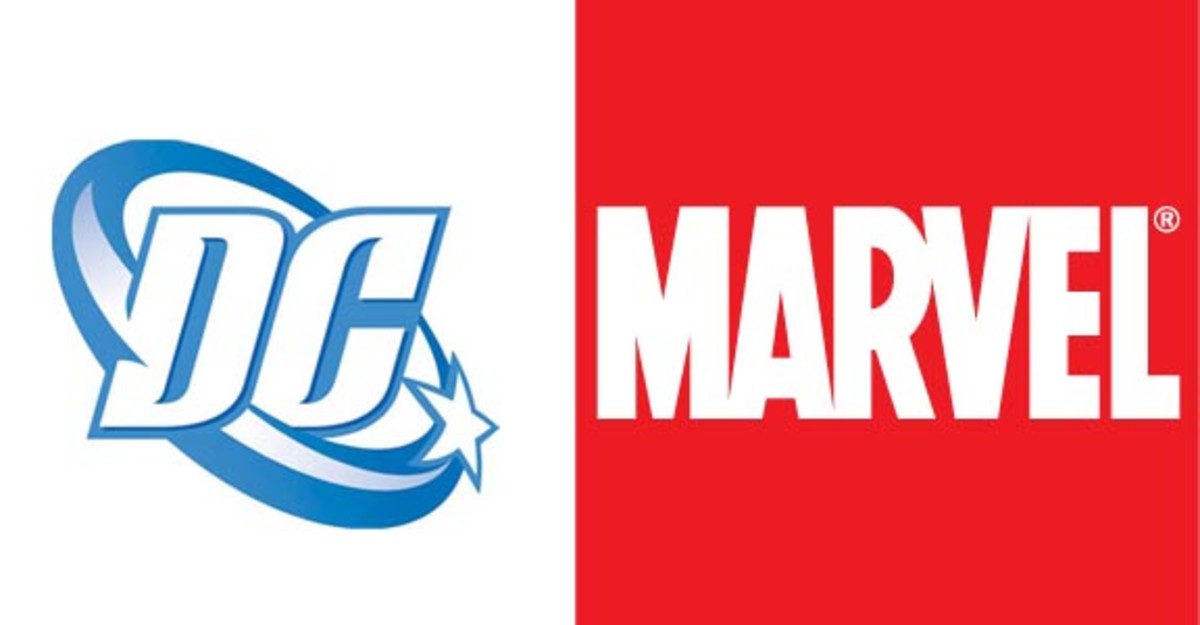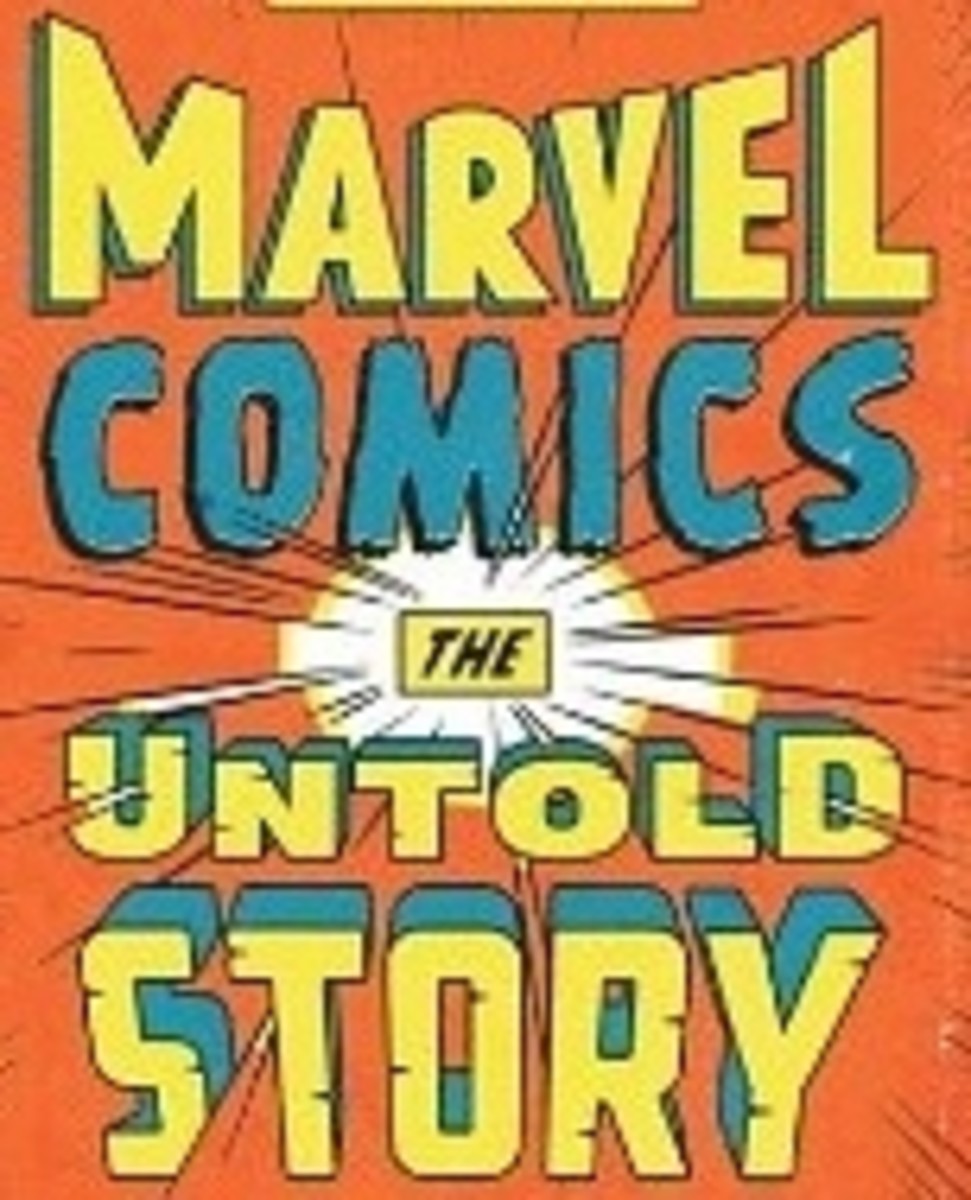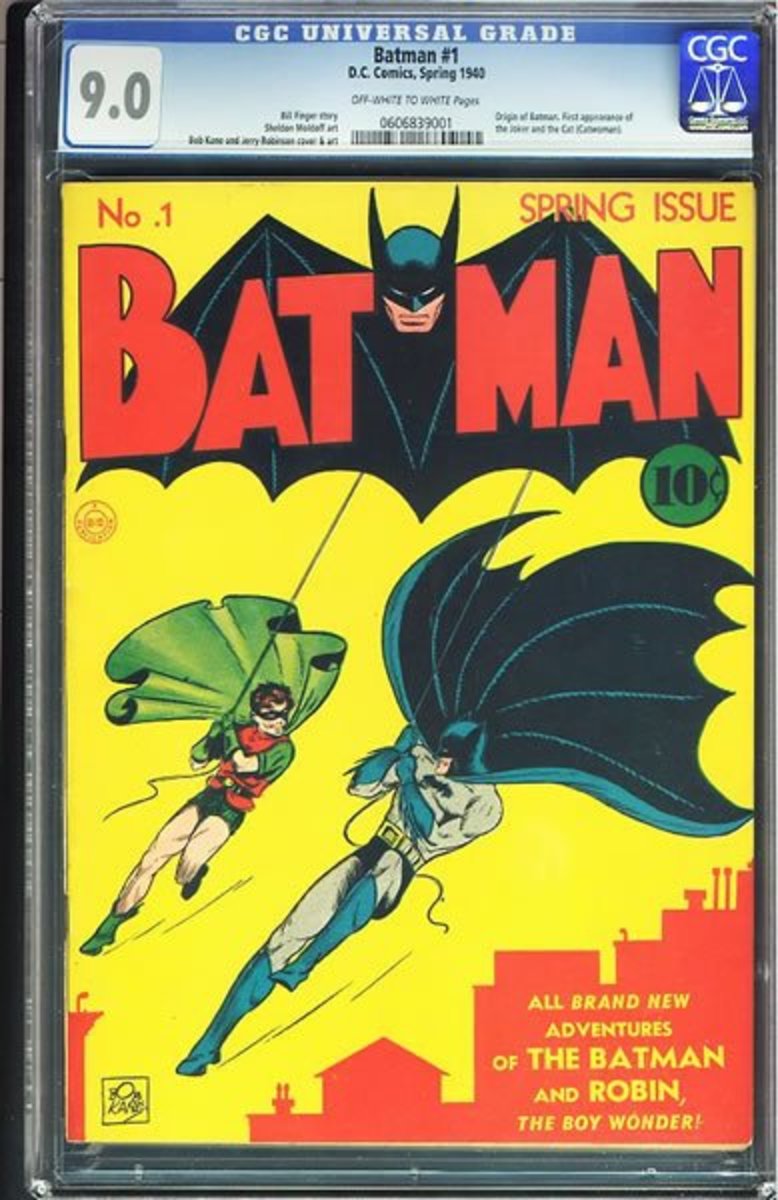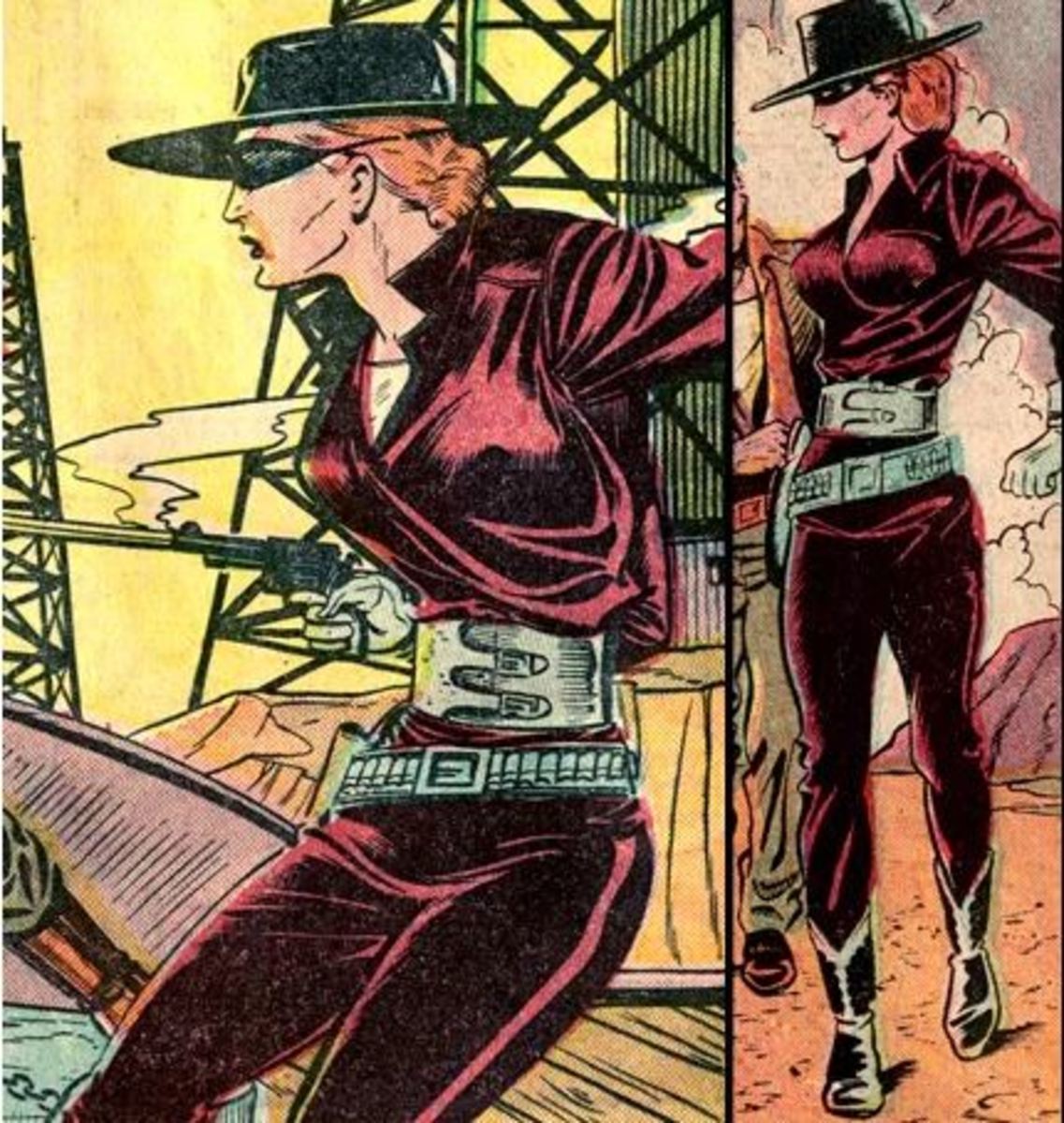Comic Book Creator Guide: Where Do I Begin?!?
The comic book industry shares many commonalities with other forms of entertainment. They are all hard to break into, and starting off hardly makes all the work seem worth it. If you’re in the business, though, you can prove to be a success and make a good life for yourself. If you are just starting out on or have found too many bumps and obstacles in your pursuit of comic book stardom, this article is for you. Having been in the industry, and speaking with many of those who have “done it right,” it becomes necessary to share what I have learned with others.
You can find a number of books out there that will help any comic book creator. These books are written by the foremost authorities in the industry and range in topic from writing, drawing, inking, and lettering. I have yet to find one book, however, that tackles the entire process—from start to finish—of getting your book published. Some of these books contain collections of interviews from successful professionals in comic books. They talk about the tips and tricks they used to make it big. You can find a number of these articles in newspapers and on the ‘Net, too.
Why Are We Here?
You will find a hundred different answers on how someone made it to the business of comic books and how they did well. It is hard for one creator to tell another comic book creator how to pursue a career they love. There are a number of observations that remain throughout, however, and we will go over these.
If you are reading this, you have to be willing to accept there are some things you simply do not know. There may even be a lot of things you don’t know. That’s okay. Breaking into any business is a learning process. Breaking into the comic book biz is no different. I have written this as a simple guide to help ease the journey.
Right now, we’re not going to go over penciling, inking, scribing, or any of that. This is a primer—a basic informative guide on how to get started. We’ll go over a number of resources available to you, and prep you for what is to come. The individual topics, we will cover in subsequent editions of the Comic Book Creator Guide.
Study, Study, Study
I know. You were hoping that last paper you handed in back in college or high school was the last time you’d have to deal with that word other than with your kids. No such luck, I’m afraid. First of all, I don’t care if you are a writer, penciller, inker, letterer, colorist, or any of that—there are always improvements you can make on your own work. Granted, you may not be able to find the right class or seminar, but you will get better through practice. Practicing is like studying. How did your parents used to make you prep from a spelling test back in grade school? Any comic book creator has to be at the top of his or her game all the time. So, don’t only look at what you’re doing. Look at what others are doing. See what you can do better.
Going hand in hand with the above is study the market. See what people are buying and what they are saying. If a book does really well, why is that? Do people love the art and/or story? Does it does something new, or is just a good old standard? Also, look at what people are NOT buying. Did anyone see the book? If they did, did they hate it? If they did not see it, why not? Was marketing done all wrong, or done at all? While you may just be one part of a creative team, these are things you need to look at. After all, you would hate to put all that time into something and not have anyone read it. Paying close attention to the market and potential fans can help you avoid costly time traps down the line.
While you are out, surveying the trends of comic books, take the time to start collecting important data now. Write down and keep a record of names, addresses, emails, phone numbers, important web addresses, etc. While now may not be the time to start soliciting your book or your skills, get this out of the way now. It will pay off by not having to spend costly time later when it is time to prepare the world for your grand unveiling.
Work Side Jobs
While you are prepping for your step into the worldwide economy of comics, take the time to do some jobs in your field. Small, low or non-paying gigs are okay. For writers, grab a freelance job doing copywriting or editing. Artists can find more work, making logos, business cards, t-shirt designs—the list goes on. The purpose for this is three-fold. First, getting into the comic book industry takes time and money. These side jobs can pay for the entrance fees at conventions, supplies, or down the road publishing costs. Those jobs you might not normally take also go with perks in the way of contacts. Here are two case studies. A friend did a logo for a small business opening up. The owner loved it, and he got paid. That business owner led him to someone else who needed work, who in turn led him to someone else. About 5 or 6 jumps into the side jobs, our diligent graphic artist/inker gets to make acquaintances with an editor within the Big Two. This turns into an internship which later turns into full-time work. Another friend I know takes freelance jobs writing copy for advertisements. This later lands him work at a big firm, which down the line lands him a project writing copy for a larger comic book publisher. Later, when he goes to pitch an idea there, some people remember him and they *gasp* give him the time of day rather than sending him on his way. While his project is ultimately rejected, he does get offered a job in the publisher’s marketing department. This leads him to more contacts and he does finally get his book published, although it admittedly didn’t do too well, he’s still in the industry last I checked. So, working side jobs gives you money, experience/referrals, and possibly contacts. I’ve had people tell me that cuts into their time to work on the comic book. Here’s the reality of it, friends. Money makes the world go round. Get the money. Hope and work hard and get the referrals. If you can’t stay up an extra four hours a day to get your comic done, you’re probably looking in the wrong industry.
Own It and Brand It
Whatever you do with comic books, you need to be able to do it different and better than everyone else. While this isn’t always possible, it is a goal you should never quit trying to meet. Your work should be your own and should be easily recognizable. You have to present that image of being unique, original, and totally you. Unlike other businesses, you can have the bad boy image here. With some crowds, it sells really well. This guy does some scary artwork and makes some twisted comments, but he tells it like it is and is actually very personable when you meet him. Yes, he’s a nice guy. I hope he doesn’t kill me for letting his secret out.
This means you always want to put your best foot forward. Unless you want no one to ever hire you. I mean, by all means, if you want to sit in the background, do what everyone else does. Spend your days tracing and plagiarizing. You might get a ghosting position somewhere in comics. But, if that’s all you want to do, why are you here? Notice: there is a BIG difference between learning what from what other people are doing right and flat out copying it. On the other hand, if your work isn’t good enough to get you a job now, it’s not totally embarrassing to start showing it off. As you continue to learn and grow, so will your work. If you can show this, it might help to impress possible editors and publishers. After all, every comic book creator had to start out somewhere.
Listen to Others
I see it every day. There are a number of people out there who could make good comics. I mean, these people are hot. They think they stink, though because they haven’t found work, or their first proposal got tossed out, or whatever. Everyone tells them not to give up, that they have talent. Instead, they decide to pack up their drafting table or throw out their computer. A comic book creator knows to listen to others. If they are telling him or her that there is promise in their work, they’ll keep at it. Comic books survive on a “never say die” attitude.
At the same time, if an editor or other professional looks at your work and takes the time to offer you an opinion, listen to it. If they tell you that your proportions are all off and to go buy such and such book on anatomy, you better be hauling tail to get to the nearest bookstore. Do not sit back and think they were just being cranky and don’t have any clue what they’re talking about. If that were the case they (a) wouldn’t have taken their time with you (b) would be coming to you for advice rather than the other way around.
Contacts, Conventions, and Comics
The real secret behind the industry, one that everyone will tell you, is this: make friends and get out…a lot. If you can afford to go to conventions, you better get to everyone you can. If you can’t afford it, see the section about side jobs. This is absolutely one of the best chances you have to get out there, meet the real pro’s, and get some advice. You’re not only getting advice, though, your making an impression. When I could still go to conventions (we’ll get into why I can’t in a minute), I often didn’t have much to show. I am a writer. It’s easy for someone to take a look at art and give a few quick suggestions and a thumb up or down. Writing is a lot more difficult. I understood this and still do. So, I made some business cards, bought some beers, and played nice with anyone and everyone I could meet. This paid off later, because I would call or email an editor or pro down the line, and most of the time they remembered me. They would invite me to send a script or give me a heads up on what was going on. I hadn’t start trying to sell myself as a writer, but rather as a friend and/or student. I knew I had a lot to learn, and so many people in the industry were very helpful.
I made mention of being able to go to conventions, and if you can’t afford it, find a way to afford it. I have a family to look after, and kids to keep in line and get to school and daycare on time. My responsibilities at this point in time keep me pretty tied down. On occasion, I might make it to a small con here or there, but I am waiting until I have that truly unbelievable product before making a plunge to the big ones. But, this does not stop me from networking with others in the comic book creator field. I find sites like myspace.com and yuwie.com. I join creators’ and company’s mailing lists and forums. I make myself known when it is important and keep my mouth shut when that’s important, too. The point here is: don’t let your circumstances halt your career in comic books.
Creating the Comic Book: The Process Begins
Once you have your basic homework out of the way (see preceding sections), it is time for the real work to begin. Just like a novel, you can’t sell a comic book until it’s done. Some comic book creators will tell you that you can get away with 5 to 10 pages, completely done, a synopsis, and other supporting documents. Then, you can pass that out to the comic book companies and get published. This is true to a certain extent, but there are so many problems with this approach, we need to go over them.
Make sure the book is finished. You want to know how it starts, how it ends, and how it stacks up against other in the market. If you have a solid writer, they should have the scripts for the first arc completely done before the penciling on the first issue is complete. The artists, whichever field their in should be able to produce good quality on a reliable schedule. If they have a day job, this can prove to be an issue. Make sure they can deliver on an acceptable deadline.
Let’s take a look at this. You get the first five or ten pages of your comic book done. You send it off and three months later, you get accepted. Your penciller has gone missing. What do you do? Or, let’s say everyone is still onboard and you have a year before the first issue will need to go to the printer. You and/or your team delays and you get the book out just in time. Now, within a month, you need the next book done. Can you do it? You’re now going to need to do it three months in a row. While this is no problem for the established comic book creator, people who are just starting out could find this to be a killing blow.
So, here is the skinny on where to start with the actual creation process. You need a story and characters that will simply rock the socks off anyone who reads it in your chosen market. Not everything is spandex and claws in comic books. There are markets for everything from gothic horror to anime to western. Don’t let anyone tell you someone is not going to buy your comic because of its genre. If they do, they’re just not n the right market. Get the story done. Get the art done. Get the production work done. Then, it’s time to market your comic book. Make it a winner every time.
We will discuss specific facets of the comic book creation process in later editions of Comic Book Creator Guide. For now, start practicing what you have (hopefully) learned from this.
Helpful Resources Online
- Digital Webbing
On online community dedicated to comic book creators, both establish and up and coming. Get critiques, find help, and more here. - Newsarama
Get all sorts of up-to-date news, interviews, and readers' feedback here. Great for keeping in touch with the industry as a whole. - CBR-Comic Book Resources
All sorts of comic book related news, interviews, resources, and more. A must bookmark for any comic creator out there.










